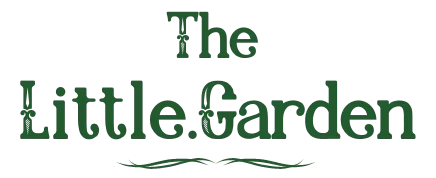You may or may have given it too much love, yet one day the tree let you wonder to yourself, “Why is my cherry tree not producing fruit?”

Cherry trees are a delightful addition to any garden (and their fruits are delicious!) or homestead, but what happens when they don’t produce fruit?
You're reading: Why Is My Cherry Tree Not Producing Fruit – You Ask We Answer
First, it’ll be a huge disappointment. Second, you may be left with a frustrating feeling.
May be not, but these modes of emotion were what I went through when my cherry tree refused to give the fruits I had been anticipating.
In this article, we will explore the reasons behind unfruitful cherry trees and provide some solutions to get them back on track.
Ornamental Cherry Trees: Beauty Without Fruit

Before we dive into the details, it’s crucial to determine if your cherry tree is even capable of fruiting.
Ornamental cherry trees, prized for their stunning flowers, are often devoid of fruit.
These trees were specifically bred for their beautiful blooms, resulting in a sacrifice of fruit production.
So, if you have an ornamental cherry tree, don’t fret if it doesn’t bear fruit.
How Long Does It Take for Cherry Trees to Fruit?
The cultivation of patience is paramount in the realm of cherry trees.
Generally, these botanical marvels commence their fruit-bearing journey upon reaching maturity, a process spanning approximately 3 to 10 years.
Opting for grafted cherry trees presents an expedited timeline, with the potential to yield fruit within a more modest 3 to 5 years owing to their accelerated growth.

In contrast, cherry trees propagated from seeds extend their maturation period, often requiring up to a decade.
Consequently, it is prudent to establish realistic expectations concerning the fruiting timeline of your cherry tree.
Identifying the Issues
Should your mature cherry tree fail to yield fruit, it necessitates an investigation into potential underlying issues.
Several factors may contribute to the absence of fruiting, encompassing improper pollination, insufficient watering, adverse climate conditions, nutrient deficiencies, inappropriate soil pH, excessive pruning, and pest infestations.
Read more : How to Prune Pinky Winky Hydrangea – A Complete Care Guide
Identifying and addressing these specific challenges will be crucial in restoring the fruit-bearing capacity of the tree.

1. Lack of Pollination
One of the primary reasons for a cherry tree’s fruitless state is poor pollination.
This is especially evident if your tree develops flowers but struggles to produce fruit.
If this is the case, inadequate pollination is likely the culprit.
To rectify this, consider planting multiple cherry trees near each other, which encourages cross-pollination.
Even self-pollinating cherry trees can benefit from increased pollination, resulting in larger and more fruitful yields.

2. Under or Over-Watering
Proper watering is paramount for cherry trees to thrive.
Over or under-watering can lead to leaf and fruit loss, root rot, and other detrimental consequences.
To ensure you’re watering your cherry tree correctly, only water when the top 2-4 inches of soil become dry.
This helps maintain an optimal moisture balance.
Additionally, applying compost and mulch around the base of the tree improves soil richness and reduces evaporation.
3. Improper Climate: Sunlight and Frost

Cherry trees thrive in full sun, requiring at least 6-8 hours of direct sunlight daily.
This sunlight aids in fruit production, ripening, and protection against fungal infections.
However, be wary of excessively hot and dry conditions, as they can lead to water loss and sunburn.
Frost is also essential for cherry trees, as they require approximately 700-800 chill hours (below 45ºF) during the dormant winter period.
Frost damage can be prevented by planting cherry trees in areas with maximum sun exposure or using protective coverings during colder temperatures.
4. Insufficient Nutrients or Soil pH

Read more : Discover the Beauty of Clematis Early Sensation
Cherry trees require proper nourishment to bear bountiful fruit. The ideal nutrient balance is an NPK ratio of 1:2:2, such as a 5-10-10 fertilizer.
Avoid excessive nitrogen, as it promotes foliage growth rather than fruit production.
Compost is a safer alternative for fertilizing cherry trees as it gradually releases nutrients.
In terms of soil pH, cherry trees prefer slightly acidic soil with a pH between 6.0-6.5.
Adding acidic materials like coffee grounds can help maintain the proper pH range.
Additionally, reducing weed competition and mulching around the tree’s base aids in retaining moisture and suppressing unwanted growth.
5. Over Pruning

Pruning is essential for training cherry trees to focus on fruit production.
It’s best to prune cherry trees at the end of summer, when they are no longer actively growing.
Avoid pruning during winter dormancy, as the tree’s reduced vigor makes it susceptible to infections.
Sour cherry trees have greater tolerance and resistance, allowing for winter pruning if necessary.
6. Pests and Disease
Identifying and addressing pests and diseases is crucial for ensuring the health and productivity of cherry trees.
Inspect the leaves for bugs and check the roots for any signs of damage. Leaves with spots or discoloration may indicate a disease.
Planting companion plants around cherry trees can help deter pests and improve overall tree health.

Final Thoughts
In conclusion, cherry trees require proper care to bear fruit consistently.
By addressing issues related to pollination, watering, climate, nutrients, pruning, and pests, you can enhance your cherry tree’s productivity.
Remember to be patient, as it may take several years for a cherry tree to reach maturity and produce its delicious fruits.
Source: https://thelittle.garden
Category: Gardening

